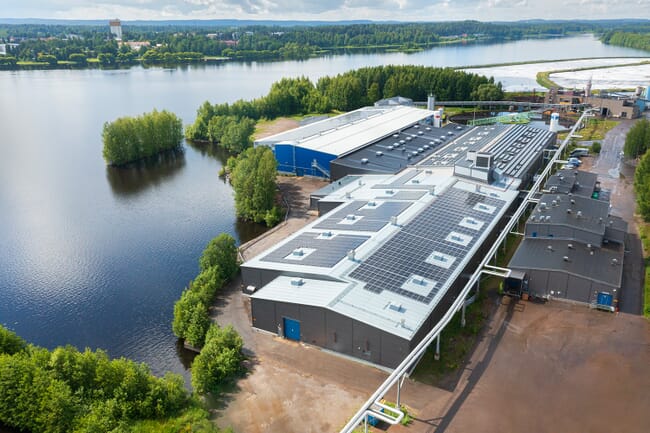
© Finnfore;l
Finnforel says that it aims to use the investment to develop their farming of rainbow trout in recirculating aquaculture systems (RAS).
Finnforel’s Gigafactory concept is covering also processing and packaging of consumer fish products onsite to minimise the number of parties involved in the logistic chain and cut transportation time.
Founded in 2015, Finnforel currently operates recirculating aquaculture systems facilities in Finland with a total production volume of 3,000 tonnes per year.
Pekka A Viljakainen, co-founder and chief executive officer of Finnforel Group, said in a press release: “Finnforel’s mission is to save the seas and feed the planet. This huge mission requires strategic partners and shareholders, with whom we can deploy our technological and operational knowledge to all continents. I believe that in future recirculating aquaculture systems (RAS) play a crucial role in enhancing food security by enabling efficient, sustainable, and reliable production of fish where execs nutrition and waste will not end up in the seas. That is why we developed our Finnforel Gigafactory with 0 percent waste policy, to be implemented there were the consumers are. We are very proud to have Mitsubishi, with a global distribution channels, talent and resources to support our Finnforel’s journey.”
According to the UN Food and Agriculture Organization (FAO), aquatic foods constitute 15 percent of the world’s animal protein intake. Global apparent consumption of aquatic foods per capita amounted to 20.6 kilograms in 2021, having more than doubled over the past 60 years. FAO projects that consumption will increase by a further 12 percent by 2032.
Akihiko Soga, division COO of the marine products division of MC, said: “We are pleased to join Finnforel’s journey through this investment. We deeply empathise with Finnforel’s vision to develop sustainable protein supply through their gigafactory concept, in which they handle feed manufacturing, farming, processing and product branding integrally. MC will continue to strengthen our farming business and contribute to sustainable supply of food resources and addressing societal needs.”



